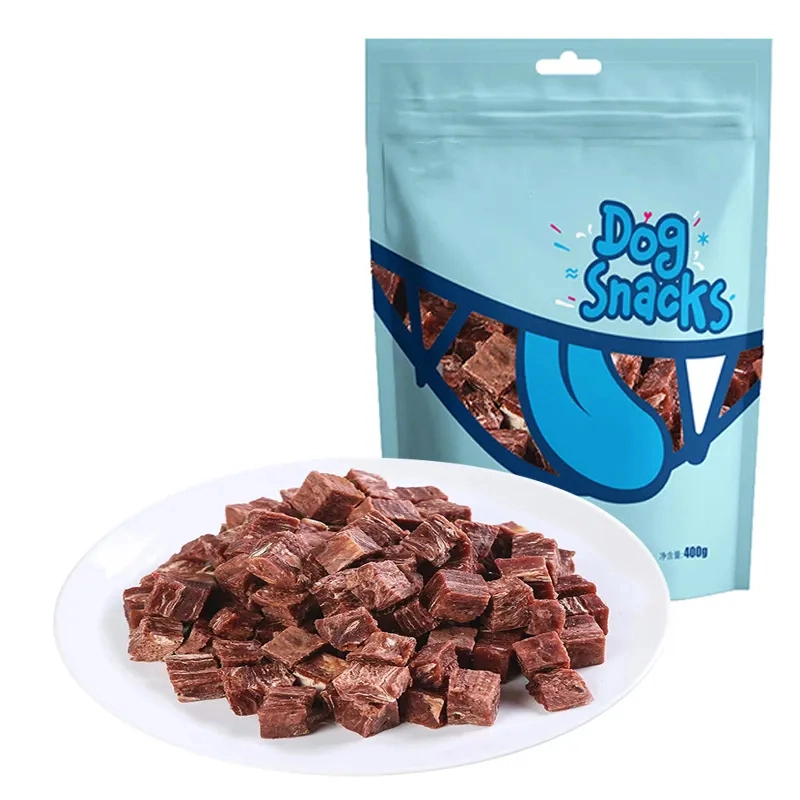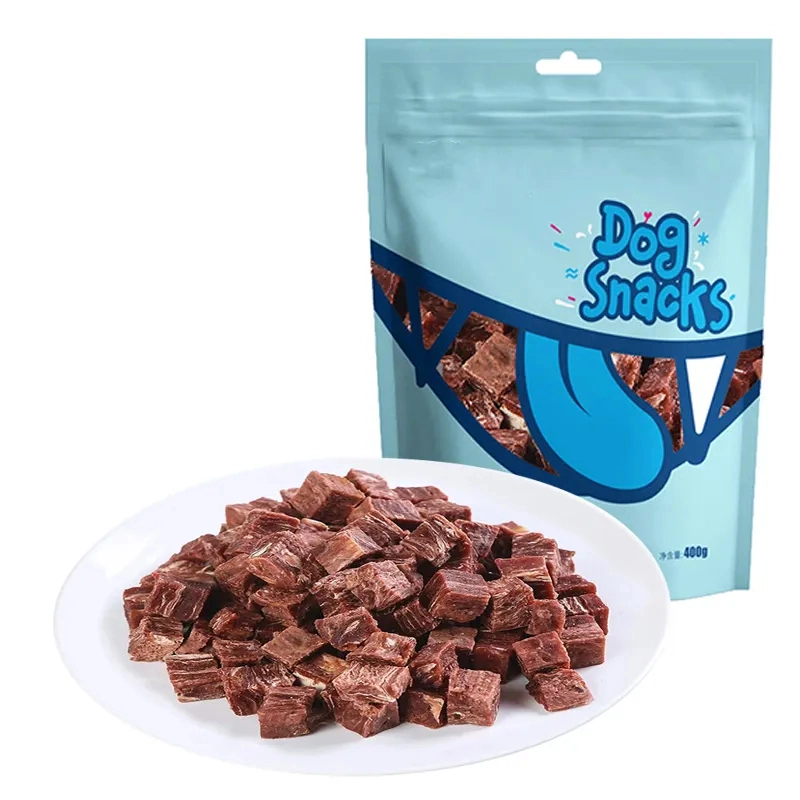Fresh Pet Dog Treats Suppliers Natural & Healthy Dog Snacks
This comprehensive guide explores the world of premium canine nutrition with key insights into:
- Market growth statistics and consumer trends
- Cutting-edge production technologies
- Comparison of leading industry suppliers
- Customization capabilities explained
- Food safety certification requirements
- Implementation timelines and processes
- Key selection criteria for manufacturers

(dog treats)
Growing Demand for Premium Dog Treats
The premium pet food sector is experiencing explosive growth, with the global market projected to reach $132 billion by 2030, growing at 5.5% CAGR. Driving this expansion is the humanization trend - 67% of pet owners now consider pets family members according to the American Pet Products Association. Nutrition represents the largest expense category after veterinary care, with owners spending 28% more on specialized diets compared to five years ago.
Fresh pet treats capture a growing segment of this market, showing 21% year-over-year growth according to Nielsen data. These minimally processed products satisfy owner demand for recognizable ingredients and cleaner labels. Production methods preserve nutritional integrity through:
- Gentle dehydration preserving enzymes
- High-pressure pasteurization killing pathogens while maintaining nutrients
- Quick-freezing for texture preservation
- Oxygen-barrier packaging extending shelf life
Production Innovations in Canine Snacks
Advanced manufacturing capabilities differentiate premium suppliers. Leading fresh pet dog treats
manufacturers employ proprietary technologies like:
Ultrasonic Mixing Systems ensure uniform distribution of delicate components like omega oils while preserving cellular integrity. This prevents ingredient separation during storage and maintains consistent nutrient delivery. Facilities operating under FSSC 22000 certification (the benchmark in food safety) implement comprehensive quality protocols exceeding basic FDA requirements.
Forward-thinking factories incorporate real-time moisture monitoring using near-infrared sensors, achieving exacting texture standards (±0.8% tolerance). Packaging innovation includes nitrogen-flushed pouches with 18-month ambient stability, eliminating the need for artificial preservatives. These technological advantages result in treats retaining 96% of original nutrient values according to independent lab testing.
Supplier Comparison Analysis
| Manufacturer | Production Capacity | Certifications | Customization Options | Minimum Order | Lead Time |
|---|---|---|---|---|---|
| NatureBite Provisions | 18 tons/day | SQF Level 3, BRCGS AA | Protein blends, functional ingredients | 500kg | 4-6 weeks |
| PurePaws Manufacturing | 12 tons/day | ISO 22000, FDA Registered | Shape/color, packaging formats | 1 ton | 8-10 weeks |
| VitalCanine Foods | 25 tons/day | FSSC 22000, OTA Organic | Complete formula development | 2 tons | 6-8 weeks |
VitalCanine Foods leads in capacity and certification credentials while PurePaws offers superior customization flexibility. NatureBite has competitive lead times for smaller retailers. Recent FDA inspection data shows VitalCanine maintained zero violations over five consecutive audits - a key consideration for brand protection.
Custom Product Development
Leading fresh pet dog treats factories provide comprehensive customization programs adapting to specific market needs:
Formula Adaptation specialists adjust protein-to-fat ratios, integrate novel proteins like cricket flour (35% protein content), or incorporate functional ingredients like CBD isolates. Recent client collaborations include senior dog formulations with added glucosamine/chondroitin showing 82% owner-reported mobility improvement in clinical observations.
Presentation Customization extends beyond shape/size to include texture engineering. Manufacturers utilize adjustable blade extruders achieving hardness ratings from 2.8-4.5 on the Shore scale to accommodate different dental needs. Packaging innovation includes fully recyclable stand-up pouches with custom barrier films proven to extend product freshness by 42 days average versus conventional bags.
Implementation and Quality Protocols
Engaging a fresh pet dog treats manufacturer follows a structured workflow:
- Requirements Definition - 2 week consultation establishing nutritional parameters, production volumes, and distribution needs
- Formulation Development - 4-6 week R&D phase including palatability testing and nutritional analysis
- Pilot Production - 3 week small-batch manufacturing with accelerated shelf-life testing
- Quality Validation - Third-party laboratory verification against nutritional targets and safety standards
- Commercial Production - Batch-controlled manufacturing with retention samples maintained for 18 months
Reputable suppliers provide certificate of analysis documentation with every shipment showing results for microbial testing, heavy metals screening (lead, mercury), and nutritional composition. HACCP plans updated quarterly ensure continuous adherence to safety protocols.
Industry Applications and Success Cases
Major pet retailers increasingly source customized fresh treats to differentiate offerings. The "BarkBox" subscription service reported 34% customer retention increase after introducing manufacturer-exclusive recipes. Veterinary prescription lines show particular growth, accounting for approximately 17% of specialized fresh treat production.
Grain-free formulations manufactured under strict allergen protocols have demonstrated particular market success. Sales data shows these specialized treats command 28% price premiums over conventional offerings while maintaining competitive production costs. Private label brands partnering with GFSI-certified facilities gain distinct advantages in retailer negotiations through robust supply chain documentation.
Selecting Quality Fresh Pet Dog Treats Suppliers
When evaluating fresh pet dog treats suppliers, prioritize partners demonstrating commitment to:
Advanced Facilities: Prioritize manufacturers housing separate allergen-controlled production zones and implementing robotic packaging systems reducing human contact. Modern sanitization installations featuring CIP (clean-in-place) systems maintain superior hygiene protocols. Look for documented pest management programs exceeding AIB International standards.
Transparency: Suppliers should provide supply chain traceability down to raw material origins with documentation confirming sustainable sourcing practices. Independent audit reports verifying facility compliance should be readily accessible. Production facilities should maintain lot tracking systems enabling precise traceback capability.
Innovation: Forward-thinking partners invest in proprietary research. Top manufacturers collaborate with university food science programs developing novel preservation techniques like microwave-assisted thermal sterilization which outperforms retort methods in nutrient retention tests by 19 percentage points. Partners maintaining active NDAs with ingredient technology providers offer competitive advantages.

(dog treats)
FAQS on dog treats
Q: How to find reliable fresh pet dog treats suppliers?
A: Research online B2B platforms like Alibaba or Thomasnet, verify certifications (e.g., FDA, ISO), and request samples to assess product quality before partnering.
Q: What should I look for in fresh pet dog treats manufacturers?
A: Prioritize manufacturers with organic/natural ingredient certifications, transparent production processes, and compliance with pet food safety regulations in your target market.
Q: Can fresh pet dog treats factories handle custom recipes?
A: Many factories offer private-label customization, including ingredient adjustments and packaging designs, but minimum order quantities (MOQs) often apply for tailored formulations.
Q: Are fresh pet dog treats suppliers required to meet specific safety standards?
A: Yes, reputable suppliers must comply with AAFCO guidelines, FDA regulations (for U.S. markets), and provide lab testing reports for contaminants like salmonella or heavy metals.
Q: How long does production take with fresh pet dog treats manufacturers?
A: Production timelines vary but typically range from 2-6 weeks, depending on order size, recipe complexity, and whether ingredients require cold-chain storage or special processing.







